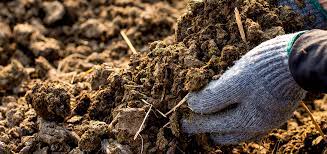Sustainable land management is the practice of utilizing natural resources in a way that preserves and improves land production while safeguarding the environment. Using organic fertilizers such as farmyard manure is an important component of sustainable land management. In this piece, we will look at the advantages of farmyard manure for sustainable land management.
Farmyard manure is a natural fertilizer obtained from the breakdown of animal feces and other organic substances.
It includes a variety of soil nutrients, including nitrogen, phosphorus, and potassium, as well as micronutrients like zinc, iron, and magnesium. The nutrients in farmyard manure are slowly released, which helps to avoid nutrient leaching and ensures that plants have a constant source of nutrients.
Read also: Poultry Manure Vs Cow Dung: Whose Sh*t is a better Fertilizer for Crops?
One of the most important advantages of employing farmyard manure in sustainable land management is that it improves soil fertility. When farmyard manure is added to soil, it improves soil structure, enhances water retention, and stimulates the growth of beneficial microbes. As a result, plant growth and yields improve.
Another advantage of utilizing farmyard manure is that it helps to lessen dependency on synthetic fertilizers, which may be harmful to the environment and human health. Nutrient leaching, water contamination, and soil deterioration can all be caused by synthetic fertilizers. Farmers may limit their usage of synthetic fertilizers by employing farmyard manure, which helps to safeguard the environment and human health.
Farmyard manure also promotes sustainable agriculture by minimizing waste. Animal waste may be a serious issue on farms, particularly in intensive livestock production systems. Farmers may decrease waste and provide a useful resource for their crops by composting animal feces and utilizing it as a fertilizer.
Read also: Soil Conservation: How to Maintain Soils for Sustainable Crop Production
Finally, farmyard manure is an essential component of sustainable land management. Its use can aid in improving soil fertility, reducing dependency on synthetic fertilizers, and promoting sustainable agriculture. It is crucial to emphasize, however, that the use of farmyard manure necessitates careful management in order to minimize environmental degradation and health dangers. Farmers should ensure that manure is composted, stored, and applied to the soil in a way that maximizes its advantages while minimizing its negative environmental and human health implications.


